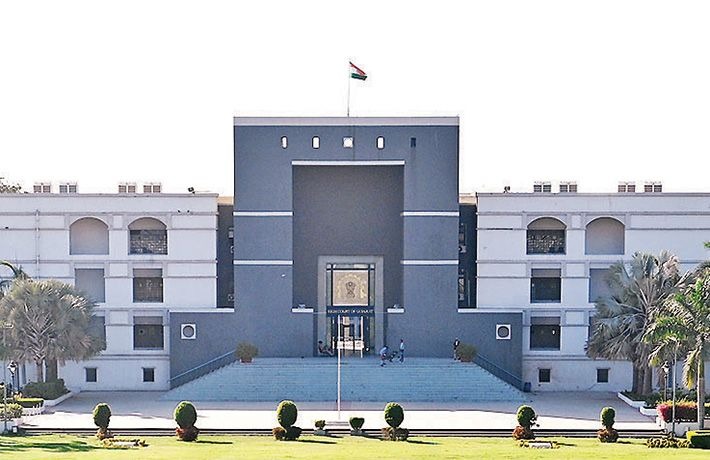
Gujarat High Court Rules VAT on Hospital Supplies Unconstitutional
Court says medical supplies given to admitted patients are part of healthcare service, not taxable sale.
Judgment protects hospitals and patients from ₹1,000 crore tax liability under VAT law.
By Our Legal Correspondent
New Delhi: November 11, 2025:
In a landmark ruling, the Gujarat High Court has held that the levy of Value Added Tax (VAT) on hospital supplies such as medicines, implants, prosthetics, stents, and consumables provided to indoor patients is unsustainable under constitutional limits. The judgment comes as a major relief to private hospitals across the state, which were facing tax demands amounting to more than ₹1,000 crore.
Also Read: ITAT Ahmedabad Rules in Favor of Woman: Tax Notice on ₹51 Lakh Property Purchase Quashed
Also Read: Case Study: How an Indian Startup Founder Incorporated in Delaware
The Court clarified that when hospitals provide medicines and consumables to admitted patients, it forms part of the overall healthcare service and cannot be treated as a separate taxable sale.
Background of the Case
The dispute arose when the State VAT Department issued notices to leading hospitals including Sterling, Shalby, CIMS, Wockhardt, and Bankers Cardiology, demanding VAT on supplies made to indoor patients. The department argued that hospitals were effectively selling goods and therefore liable under the Gujarat Value Added Tax Act, 2003.
Also Read: Supreme Court Clarifies: Nullity Decree Can Be Challenged Anytime, Even During Execution
Also Read: Supreme Court Rules: Transfer of Property Title Not Liable for Service Tax
Hospitals challenged these demands, contending that the supply of medicines and consumables was inseparable from medical treatment and therefore not taxable. They argued that healthcare services are protected under constitutional provisions and cannot be equated with commercial sales.
Court’s Observations
- Healthcare is a service, not a sale: Supplies of medicines and consumables to admitted patients are part of medical treatment.
- Constitutional protection: Levying VAT on hospital supplies violates constitutional principles, as healthcare is a fundamental right.
- Unsustainable tax demands: The VAT department’s attempt to recover dues from hospitals was declared unsustainable.
- Distinction between sale and service: The Court emphasized that hospitals do not sell medicines in the commercial sense; they administer them as part of treatment.
Also Read: ITAT Jaipur Rules: Middleman Not Liable for Tax on Forfeited Property Advance
Also Read: Kerala High Court Halts New Renewable Energy Rules for One Month
Why the Judgment Matters
- Relief for Hospitals: Private hospitals across Gujarat are spared from paying massive tax liabilities.
- Protection for Patients: The judgment ensures that patients are not burdened with higher costs due to VAT.
- Clarity in Tax Law: It distinguishes between healthcare services and commercial sales, preventing misuse of VAT provisions.
- Precedent Value: The ruling will guide future disputes in other states where similar tax demands may arise.
Impact on Stakeholders
- Hospitals: The judgment provides financial relief and ensures smoother operations without fear of retrospective tax demands.
- Patients: Costs of treatment will remain stable, as hospitals will not pass on VAT charges.
- Tax Authorities: The ruling restricts them from treating healthcare services as taxable sales.
- Healthcare Sector: The decision strengthens the legal framework protecting healthcare from commercial taxation.
Also Read: Supreme Court Rules: No Right to Job for Landowners Under Land Acquisition Act
Expert Opinions
- The judgment reinforces the principle that healthcare is a service, not a commodity.
- It prevents arbitrary taxation and protects hospitals from financial distress.
- It aligns with constitutional values that prioritize healthcare as a fundamental right.
Healthcare industry leaders also noted that the ruling will encourage investment in hospitals and improve patient care, as institutions are freed from heavy tax burdens.
Lessons for Policymakers
- Respect Constitutional Limits: Taxation must not infringe on fundamental rights such as healthcare.
- Avoid Double Burden: Patients already pay for treatment; adding VAT would amount to double taxation.
- Ensure Clarity in Law: Legislators should clearly distinguish between services and sales in healthcare.
- Promote Healthcare Access: Policies should encourage affordable treatment, not increase costs.
Also Read: Gujarat High Court Rules VAT on Hospital Supplies Unconstitutional
Also Read: Supreme Court Rules: Arbitrators Cannot Rewrite Contracts – IRCTC Wins Against Caterers
Broader Implications
The case reflects a larger issue in India’s taxation framework—the need to balance revenue collection with constitutional protections. While governments seek to expand tax bases, essential services like healthcare must remain safeguarded.
For the healthcare sector, the ruling is a turning point. It ensures that hospitals can focus on patient care without fear of arbitrary taxation. For patients, it is reassurance that medical treatment will not be treated as a taxable commodity.
Conclusion
The Gujarat High Court’s ruling that VAT on hospital supplies is unsustainable under constitutional limits is a landmark decision that protects hospitals and patients from unjust taxation. By clarifying that healthcare services cannot be treated as commercial sales, the Court has reinforced fairness, constitutional values, and public interest.
This judgment will serve as a guiding precedent for future disputes across India, ensuring that healthcare remains accessible and affordable.
Also Read: Bombay High Court Stays FIR Against Flipkart in Shemaroo Copyright Dispute
Also Read: Supreme Court Rules: DNA Test Cannot Be Ordered Without Nexus to Offence